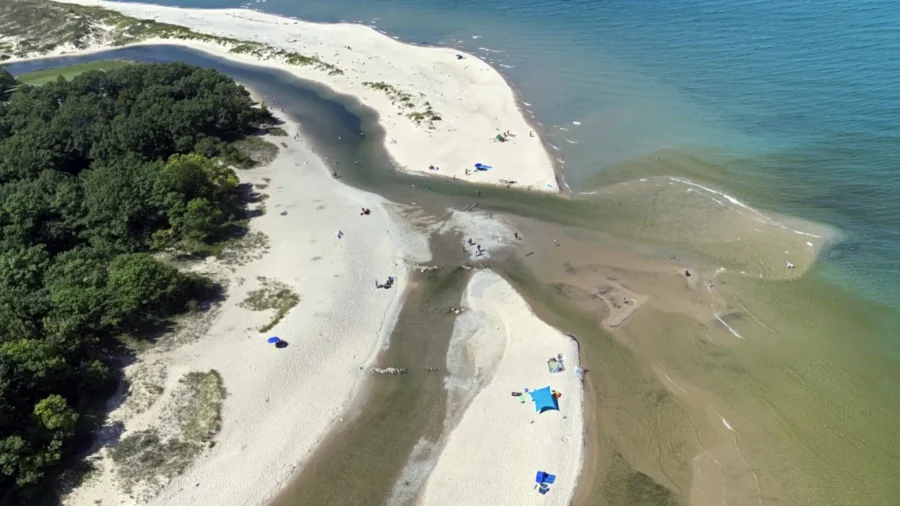EMPIRE, Mich.—A man accused of diverting a national park river to ease boat access to Lake Michigan has been convicted of two misdemeanors.
Andrew Howard of Frankfort was found guilty of tampering and vandalism Wednesday during a brief trial in front of U.S. Magistrate Judge Ray Kent.
In August 2022, a National Park Service ranger witnessed Mr. Howard digging with a shovel so the Platte River in the Sleeping Bear Dunes National Lakeshore would be diverted into one of the Great Lakes, prosecutors said in a court filing.
“Within days, the natural power of the water and the constructed dam caused the river to divert and created a new channel to Lake Michigan that grew to approximately 200 feet (61 meters) wide,” Assistant U.S. Attorney Lauren Biksacky said.
“It stayed approximately that wide for the summer and fall season,” she added. “There was then an influx in the number of fishermen that came to Platte River boat launch to take advantage of the favorable conditions of access created by the new channel.”
The Associated Press left a voicemail and email seeking comment from Howard’s attorney Thursday.
U.S. Attorney Mark Totten said Mr. Howard had a policy dispute with the National Park Service and “took matters into his own hands.”
The Park Service no longer dredges the Platte River. As a result, sediment and sand build up, reducing the ability to get boats to Lake Michigan.


